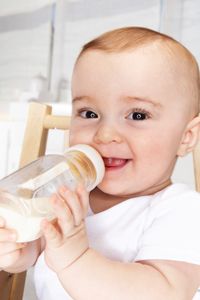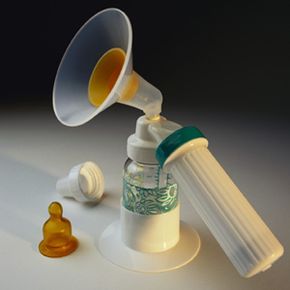From 2004 to 2006, the U.S. Department of Health and Human Services ran public service announcements to encourage women to breast-feed. In one advertisement, two pregnant women engaged in a log-rolling contest, a water sport in which competitors try to stay on a moving log longer than the other person. In another ad, a pregnant woman rode a mechanical bull in a bar in front of a roaring crowd. In both advertisements, a pregnant woman experienced a violent spill, which was followed by this text: "You wouldn't take risks before your baby's born. Why start after?" An announcer's voice then beseeched women to breast-feed and rattled off some of the benefits associated with breast-feeding.
Is bottle-feeding akin to riding a mechanical bull while pregnant? In today's mommy wars, in which women pass judgment on other mothers' parenting choices, it can certainly seem so. Dictates to American women to breast-feed are nothing new -- Puritan minister Cotton Mather urged the practice in his sermons. So why did women ever start bottle-feeding at all? In the late 1880s, baby formula arrived on the market, and many American women came to believe that they were unable to breast-feed, perhaps because doctors paid off by formula manufacturers suggested as much [source Lepore]. Some women even believed they were in the midst of an evolutionary shift -- just as men had developed vestigial nipples, so too had they [source: Lepore]. Further complicating matters: The U.S. has sexualized the breast more than any other country, according to historian Marilyn Yalom [source: Harmon].
Advertisement
In the 1950s and 1960s, American women began reclaiming their breasts from this vestigial wasteland. The breastfeeding advocacy and support group La Leche League formed in 1958, and in the decades that followed, feminists declared that women's breasts served a purpose other than pleasing men. The 1971 book "Our Bodies, Ourselves" mentioned that breast milk could make babies healthier than formula could. Currently, the American Academy of Pediatrics recommends that mothers feed their babies exclusively with breast milk for the first six months of life.
When it first appeared on the market, infant formula seemed to have science on its side; it was a way to measure precisely how much food a baby received. Now, science seems to be on the side of breast-feeding. What do the studies say?
Advertisement



